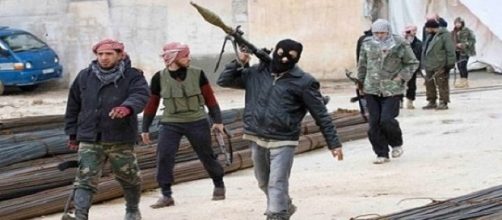After ten daysof operations in Syria, Russia has been able to damage ISIS operations in the regions. These political and military successes (which the United States has failed to achieve in three years of military operations) have shifted the regional balance of power in Russia's favour, leading the Obama administration to reconsider its current policies.Despite these aggressive advances, unconfirmed reports from Syria are pointing to territorial advances made by ISIS near the city of Aleppo. Regardless of whether the Russian coalition will be effective, this shows that a conclusion to the conflict is a long road ahead.
The U.Shas beenaiding Syrian rebels topple Assad since the beginning of the Syrian civil war in 2011. Despite insistences that the elements that the U.S was funding were "moderates" and not religious extremist, this assertion has been challenged by many and has never been substantially proven. It is believed that at least some of the weapons provided to these rebels ended up in Islamic militants' hands.
On Sept. 16, 2015, the Senatearmed services committee was told from Gen.Lloyd Austin, commander of US Central Command, that the $500 million plan to train moderate rebels in Syria has yielded only a handful of active combatants.“We’re talking four or five,” Gen. Austintold a bewildered committee.
Two weeks later, Russia began its air-strikes against ISIS in Syria, and the Obama administration has had to react accordingly since. Following the Senate committee's hearing, a policy shift was announced: the U.S would no longer train combatants but will instead focus on providing low-grade tech and armaments.
On Wednesday, Oct. 7, the Senate passed the NDAA 2016 with a veto-proof majority. The bill authorizes devolving$612 billionto the Pentagon, $600 million of which will be used for the "vetting process"of Syrian rebel commanders to ensure that they are not linked to militant Islamic groups.
Many have already criticized the policy as doomed to fail. A similar situation took place in 2012 when, after a coordinated plan of assassinations and takeovers, Al-Nusra militantsapprehended the majority of the other anti-government faction's armaments.
In the hands of poorly trained combatants, the introduction of more weapons may exacerbate the situation in favour of Islamic factions.
The question remains: why is the Obama administration so bent on aiding the Syrian rebels? In an interview with the New York Times in August 2014, President Obama stated that hoping for moderate rebels to make a difference on the battlefield has"always been a fantasy". The question that would naturally follow, thus, is why would the Pentagon approve such a costly project knowing in advance that itwould be futile?Those who do not believe the official reports claim that this is another pretext for the United States to fund Islamic combatants in the region achieve regime change in Syriaand foment instability in the region.

